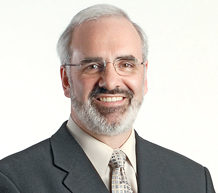
It’s August. As the 2018 influenza season approaches, AMDA – The Society for Post-Acute and Long-Term Care Medicine is again encouraging post-acute and long-term care facilities to strengthen their employee immunization programs to protect their employees and patients.
Flu season can start as early as the end of August and last through April, and nursing homes would do well to put this in context: Between 71% and 85% of seasonal flu-related deaths occur in people age 65 years and older.
We all remember last year’s flu season, which was particularly brutal for older adults and, especially, for nursing home residents. The close quarters of nursing homes and other PA/LTC settings, the weakened immune response and medical complexity of the residents, and their frequent contact with multiple caregivers make our setting a particularly susceptible and dangerous environment for flu outbreaks.
The Centers for Disease Control and Prevention recommends that all healthcare personnel should be vaccinated annually against flu. This recommendation includes a special emphasis on vaccinating HCP who work in PA/LTC, because their patient population is at high risk for serious complications from flu, and because the risk of flu outbreaks in these facilities is so high.
The Healthy People 2020 initiative to improve the health of all Americans includes a goal for HCP flu vaccination coverage of 90%.
So, how are we doing?
Last year, the CDC reported that HCP vaccination rates in PA/LTC were 68% compared with 92% in hospitals, and PALTC facilities have the lowest flu vaccination coverage for HCP of all healthcare settings.
The good news? Although our PA/LTC facilities have room for improvement, there are strategies that can help us achieve this goal. According to the CDC data, facilities that have the highest HCP flu vaccination rates have mandatory vaccination policies, provide vaccination on-site and free of charge to HCP, and have clinical leaders who actively promote vaccination. (HCP working in hospitals were more likely to report that their facility had a flu vaccination requirement [69.5%] than were HCP working in long-term care [26.2%]).
Even during flu seasons when the vaccine has been found to have relatively low effectiveness, it can still lessen the severity of illness and often prevents serious complications and death from flu, including among the elderly. Additionally, flu vaccines are safe and more effective the more people are vaccinated.
Stronger guidance for increasing HCP flu vaccinations
As recently as 2011, the Society has published recommendations on HCP flu vaccination. This year we’ve updated our guidance to make it stronger and more specific:
- We support mandatory annual flu vaccination for all PA/LTC HCP—defined as anyone who is in direct or indirect contact with residents, including employees, contract staff, family caregivers, and volunteers—unless there is a medical contraindication.
- We support education for HCP on the efficacy and safety of flu vaccines in general and specifically as an important measure to enhance PA/LTC resident safety.
- We recommend that medical directors and other clinical leaders get involved by encouraging professional HCP and family caregivers to obtain an annual flu vaccination.
- We recommend that employees who don’t receive a flu shot wear a mask when in direct contact with residents during flu season, as well as receive targeted education to encourage vaccination.
- And, following the recommendations of CDC’s Advisory Committee on Immunization Practices (ACIP), PA/LTC facilities and corporations should make the flu vaccine available on-site and at no cost to employees and volunteers.
The Society is working with the CDC, the Immunization Action Coalition (IAC), and the National Adult and Influenza Immunization Summit, which are renewing their efforts to improve PA/LTC HCP immunization rates. The CDC has a flu toolkit specifically for LTC employers. The NAIIS, which comprises more than 130 public and private organizations whose focus is to implement the ACIP recommendations on adult immunizations, has launched a web page that provides resources for facilities to establish a consistent, safe, and effective vaccination program, including a Checklist of Best Practices for vaccination clinics held in non-traditional settings (e.g., cafeterias, hallways, classrooms, and other temporary settings).
Since 2009, the IAC has maintained an influenza vaccination honor roll for health care organizations that pledge to adopt a mandatory flu immunization program. Now, thanks to the Society’s collaborative work with the CDC, IAC is setting up a PA/LTC-specific honor roll that will recognize the leadership of all PA/LTC facilities that pledge to adopt a mandatory flu vaccination program for their HCP.
HCP vaccinations have a substantially beneficial impact on decreasing the spread of the flu virus during flu season and in preventing flu-related deaths among residents—it is estimated that some 20% of flu deaths could be prevented if HCP vaccination approached 100%. This impact will be especially significant in PA/LTC.
That’s why we urge PA/LTC organizations to follow the Society’s guidance: That they make flu shots mandatory for HCP (unless there’s a contraindication), available on-site at the facility, and at no cost to the HCP. Personnel who don’t get vaccinated should wear masks and receive targeted education on the benefits of immunization.
And our clinical leaders have an important role here: To actively promote flu vaccination as a resident, staff, and family safety measure. HCP who decline the vaccine should be asked to meet with their medical director, so s/he can understand their objection and be certain that it’s an informed choice. Guidance for administrators and leadership in PA/LTC who are considering implementing a flu vaccination requirement policy can be found here.
Together, we can improve the sadly lagging performance in PA/LTC compared to other health care settings in the rates of HCP flu immunization. The resources AMDA, CDC, IAC, and NAIIS provide can help nursing homes improve. When HCP are immunized annually, everyone benefits. We can do this—and we should.
Christopher E. Laxton, CAE is a career association professional with 35 years of experience in nonprofit leadership, governance and operations. He is executive director of AMDA – The Society for Post-Acute and Long-Term Care Medicine, a position he’s held since February 2013.





